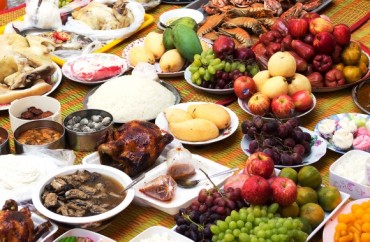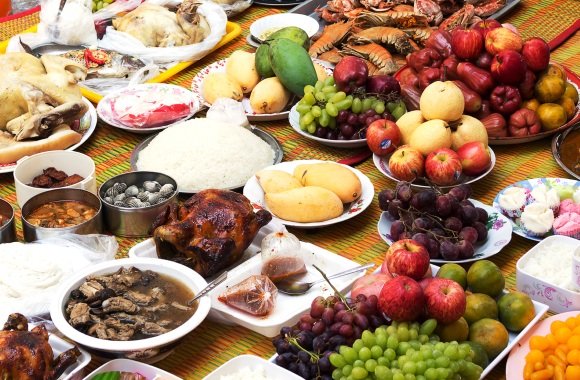
Fall classes ‘Black Food Matters’ and ‘Chocolat’ will study food, race, and ‘oppression’
A critical writing seminar offered in the fall at the University of Pennsylvania will study how racism affects “contemporary food justice movements” and the “unjust” challenges it creates for “Black Food.”
The course “Black Food Matters” will explore how “race and racism fit into, shape, and inform contemporary food justice movements,” according to the course description, listed on the university’s fall 2025 class schedule.
A critical writing seminar, the course description states the primary concern is to refine students’ reading and writing skills through “reasoning, evidence, citation practices, and other means of … sharing knowledge with diverse audiences.”
However, Adam Kissel, a visiting fellow at the Heritage Foundation’s Center for Education Policy, warned of the impact courses like this one will have on the American workforce.
He recently co-authored the book “Slacking: A Guide to Ivy League Miseducation,” which critiques many of the pop culture and ideologically-focused general education courses offered at Ivy League universities.
“Employers who are hiring recent graduates should take a close look at the transcripts of the finalists,” Kissel told The College Fix in a recent email.
“Longer term, the star power of legacy elite institutions will keep decreasing in favor of higher-quality classical education because employers will increasingly understand the value of a meaningful and worthwhile college degree,” he said.
Students enrolled in the course at UPenn, an Ivy League school, will study essays in the book “Black Food Matters: Racial Justice in the Wake of Food Justice.”
“A comprehensive look at Black food culture and the various forms of violence that threaten the future of this cuisine, Black Food Matters centers Blackness in a field that has too often framed Black issues through a white-centric lens, offering new ways to think about access, privilege, equity, and justice,” according to the book description by the university bookstore.
The book was edited by Hanna Garth, a professor of anthropology at Princeton University, and Ashanté Reese, a professor of African studies at the University of Texas. It examines the “broken” food system that “Black consumers” experience due to an “inequitable distribution of resources,” according to its description.
The book also notes the text is framed through the lens of “Black Agency” instead of “deprivation” and that it challenges the status-quo definition of “healthy.”
The university media relations office did not respond to two emails from The College Fix asking for a course syllabus and how a writing seminar centered around “Black injustice” improves students’ critical reading and writing skills.
MORE: Professor says Michelin restaurant guide is ‘side of racism with the boeuf bourguignon’
Kissel told The Fix that students should look elsewhere, rather than UPenn and similar universities, if they want to truly improve their writing.
“The humanities and social sciences, for the most part, are irredeemably broken in the Ivies,” Kissel said. “For lovers of literature and what’s known as the Great Conversation, students should find a better school, whether it’s Hillsdale or an honors program at a public university in Florida.”
Another course, “Decolonizing French Food,” highlighted in Kissel’s book, was offered at the University of Pennsylvania in 2023. It explored how “writers and filmmakers use food to interrogate the human, environmental, and cultural toll that French colonialism has taken on the world.”
Other universities also offer courses on understanding food through a racial lens.
Bennington College has a “Chocolat” course as part of its French curriculum this fall. Along with teaching French language and culture, the class also delves into how chocolate consumption has “revealed new forms of slavery and oppression” throughout the world.
The class also will teach students about sexual and gender identity “in the context of production and consumption of chocolate in the French and francophone world,” according to the course description.
Bennington, a private liberal arts college in Vermont, did not respond to The Fix’s two emails asking for more details about the class and present-day examples of how chocolate and food carry the heavy weight of a “colonial past.”
MORE: Dante or Disney films? Book explores good and bad of Ivy League education
IMAGE CAPTION AND CREDIT: A variety of foods are displayed on a table; FotoKopi/Shutterstock







